Have you ever seen a cat that looks like a fluffy dachshund? Despite their popularity, the short legs of these cats cause heated debate and health concerns.
Cats with short legs, like the Munchkin, often suffer from limited mobility and other health problems.
In this article, we delve into the world of Munchkin cats, highlight their special features, discuss the ethical aspects of their breeding and give tips on keeping them.
Discover the Munchkin Cat: Unique and Controversial

The Munchkin cat is known for its unique short legs , which give it a distinctive look. This breed is not only notable for its appearance, but also for its lovable character : Munchkins are known for their friendly and playful nature. They love spending time with their humans and are also very sociable towards other pets and children. Despite their short legs, they are amazingly nimble and can move around their home well.
But the Munchkin cat is also the subject of controversy . Some animal lovers and experts are concerned about the health and welfare of these animals because the short legs are the result of a genetic mutation. In this article, you will learn more about the fascinating and controversial aspects of the Munchkin cat:
- Appearance and personality : What do Munchkins look like and what characterizes their character?
- Health and care : What special needs do they have and how can you keep them healthy?
- Ethics of breeding : Why are there discussions about breeding this breed?
Characteristics of the Munchkin cat: appearance and character

Munchkin cats are particularly notable for their short legs , which have earned them the nickname "dachshund cat". These unique characteristics make them unmistakable and give them a clumsy appearance. Their wedge-shaped head , large, erect ears and almond-shaped eyes that are set wide apart complete the Munchkin cat's characteristic appearance. Their medium-length, tapered tail ends in a rounded tip and gives them an additional elegance.
In addition to their special appearance, Munchkin cats are known for their lovable character . They are:
- active and playful
- affectionate and sociable , which makes them ideal companions
- intelligent and curious , which means they like to explore their surroundings Their size and fur vary, giving them additional diversity. Despite their short legs, they show surprising agility and move skillfully through their environment.
The History of the Munchkin Cat: Origins and Development
The Munchkin cat is a relatively new breed that has its origins in the 1980s in the USA. A cat named "Blackberry" and her offspring, in particular a tomcat named "Toulouse", are considered the ancestors of this breed. The Munchkin was recognized by the TICA in 1994, although it is not accepted in other associations due to health concerns. The name "Munchkin" refers to the small-statured people from the story "The Wizard of Oz".
Health and Care: What Munchkin Owners Should Know
Despite their unusual stature, Munchkin cats can have a life expectancy of up to 15 years . They require a high-quality diet and appropriate portioning. Common health problems include:
- Osteoarthritis , especially in the joints
- A tendency to be overweight
- Lordosis , a spinal disease Regular brushing of the coat, depending on the length, is also an important part of their care.
Ethics and Controversies: Is the Munchkin Cat a Cruel Breed?
Breeding Munchkin cats is controversial because their short legs are the result of a genetic mutation. While some breeding associations do not recognize the breed due to potential health problems, enthusiasts defend the Munchkin as no more prone to disease than other breeds. Critics, on the other hand, see the deliberate breeding of these physical traits as an unethical practice .
Keeping and Care: Tips for Munchkin Cat Owners

Munchkin cats are not only adorable, but also easy to care for. A high-quality diet is crucial for their health. You should make sure that your Munchkin gets wet food with a high meat content or fresh meat. The portions must be adjusted to your cat's activity level and body type to avoid obesity. Since Munchkin cats tend to be limited in their movement , it is important to keep an eye on their weight.
Grooming is another important aspect of keeping your Munchkin cat happy and healthy. Brushing once or twice a week is enough, depending on whether they have short hair or semi-long hair. Since Munchkins are sometimes not very good at grooming themselves, your help is needed. Here are some tips for grooming:
- Regular brushing to remove dead hair and prevent matting
- Use a soft brush or comb that is suitable for your cat's coat
- Watch for signs of skin problems or parasites during grooming By following these simple steps, you can ensure the well-being of your Munchkin cat.
Buying a Munchkin cat: What you should consider
If you are thinking about buying a Munchkin cat , there are a few important points to consider. First, it is crucial that you choose a reputable breeder . A responsible breeder will place value on the health and well-being of the animals and will be happy to answer any questions you may have about the breed. Make sure that the cats grow up in a clean and loving environment and that they have all the necessary vaccinations and papers .
The cost of a Munchkin cat can range from 1,000 to 2,000 euros . This price should include the basic vaccinations and the cat's papers. Here are some points to keep in mind:
- Pay attention to the socialization of the kittens and that they are used to people and everyday noises.
- Find out about the health history of the parents to rule out potential hereditary diseases.
- Keep in mind that because of their short legs, Munchkin cats are not as agile as other cat breeds and therefore require special attention. By considering these aspects, you can ensure that you welcome a healthy and happy Munchkin cat into your family.
Similar cat breeds: Small alternatives to the Munchkin
If you're looking for small cat breeds as an alternative to the Munchkin, there are some interesting options. The Napoleon cat , a cross between a Persian cat and a Munchkin, is known for its majestic coat and short legs. Another breed is the Minskin , which is the result of breeding a Munchkin with a Sphynx and is characterized by a short stature and sparse coat. Both breeds share the Munchkin's short legs but have their own unique features.
There are also unrecognized breeds that have short legs but are not officially considered a breed of their own. These often arise from crossbreeding Munchkin cats with other breeds. Here are some examples:
- Cats that are the result of crossing with a domestic cat to keep the appearance more uniform.
- Special breeds that are characterized by a combination of characteristics of different breeds. These alternatives may be of interest to cat lovers who like the look of short-legged cats but want to try a different breed.
Flappie's Solution for Munchkin Cat Owners
Munchkin cat owners know the problem when their little darlings come home with prey and turn the house into a hunting ground. Flappie offers an innovative solution: an intelligent cat flap with prey detection . This flap uses artificial intelligence to detect whether your Munchkin cat has caught something. If so, the door stays closed, preventing the prey from coming into the house.
The advantages of the Flappie cat flap are clear:
- Selective access control prevents unwanted visits
- Prey detection protects your home from unpleasant surprises
- The Flappie app will inform you of your cat's attempts to bring back prey, and you can control everything remotely. This way, your home stays clean and your Munchkin cat can still come and go freely as long as he is alone.
Frequently Asked Questions
What are the cats with short legs called?
The cats with short legs are called Munchkin cats.
Are Munchkin cats healthy?
Munchkin cats can have a life expectancy of up to 15 years despite their unusual stature. However, they are prone to health problems such as osteoarthritis, a tendency to be overweight, and lordosis, a spinal disorder. There is debate surrounding the ethics of breeding this breed due to potential health problems that can be caused by the short legs.
How are Munchkin cats created?
Munchkin cats are the result of a genetic mutation that is responsible for their short legs. The breed originated in the 1980s in the United States, and a cat named "Blackberry" and her offspring, particularly a male named "Toulouse," are considered the ancestors of this breed.
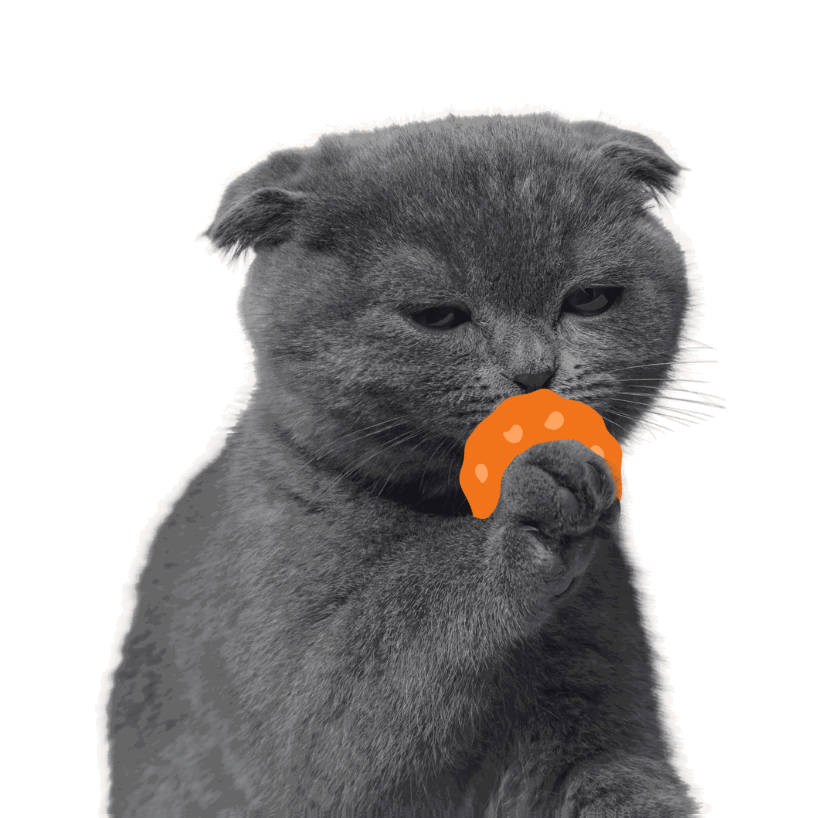
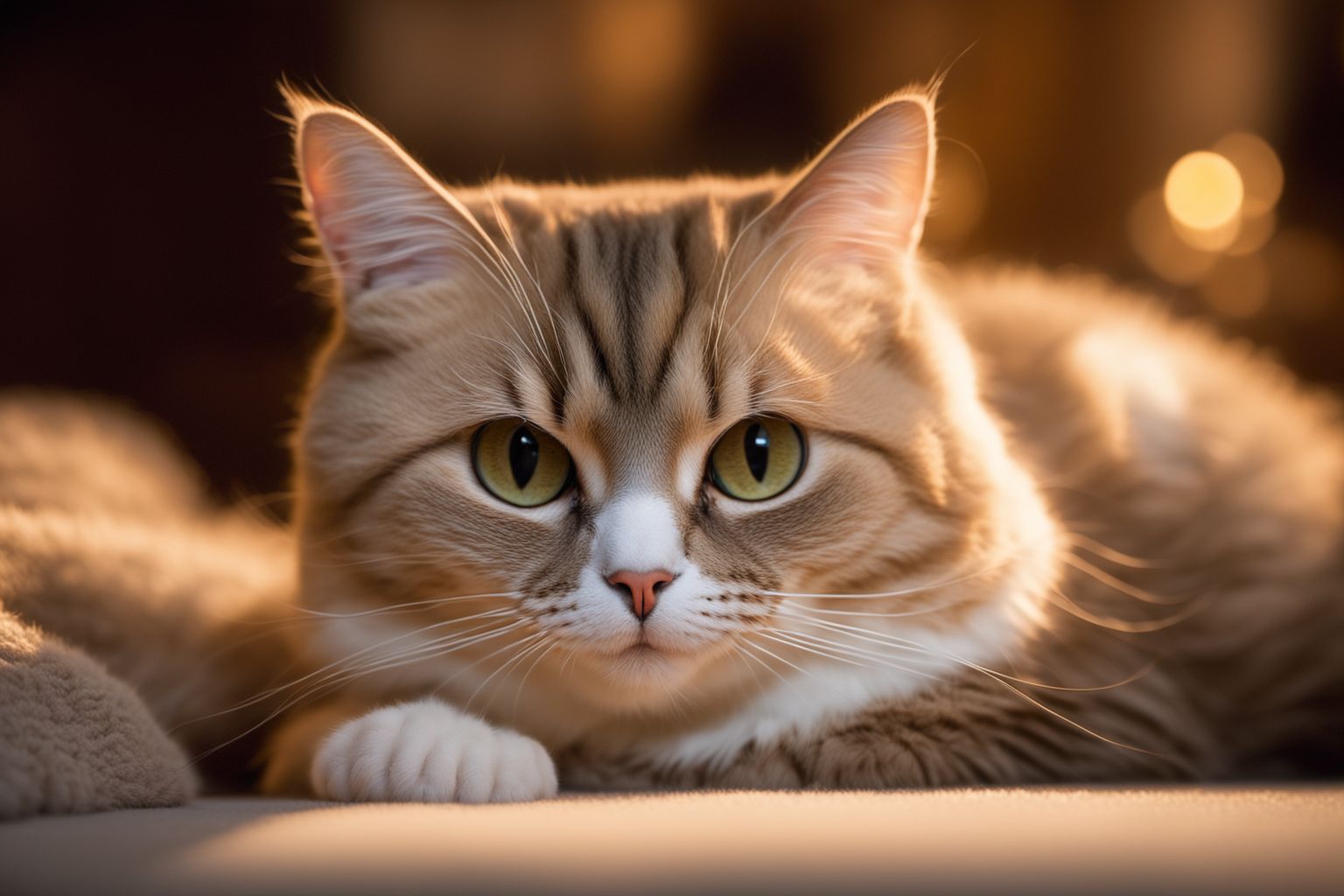
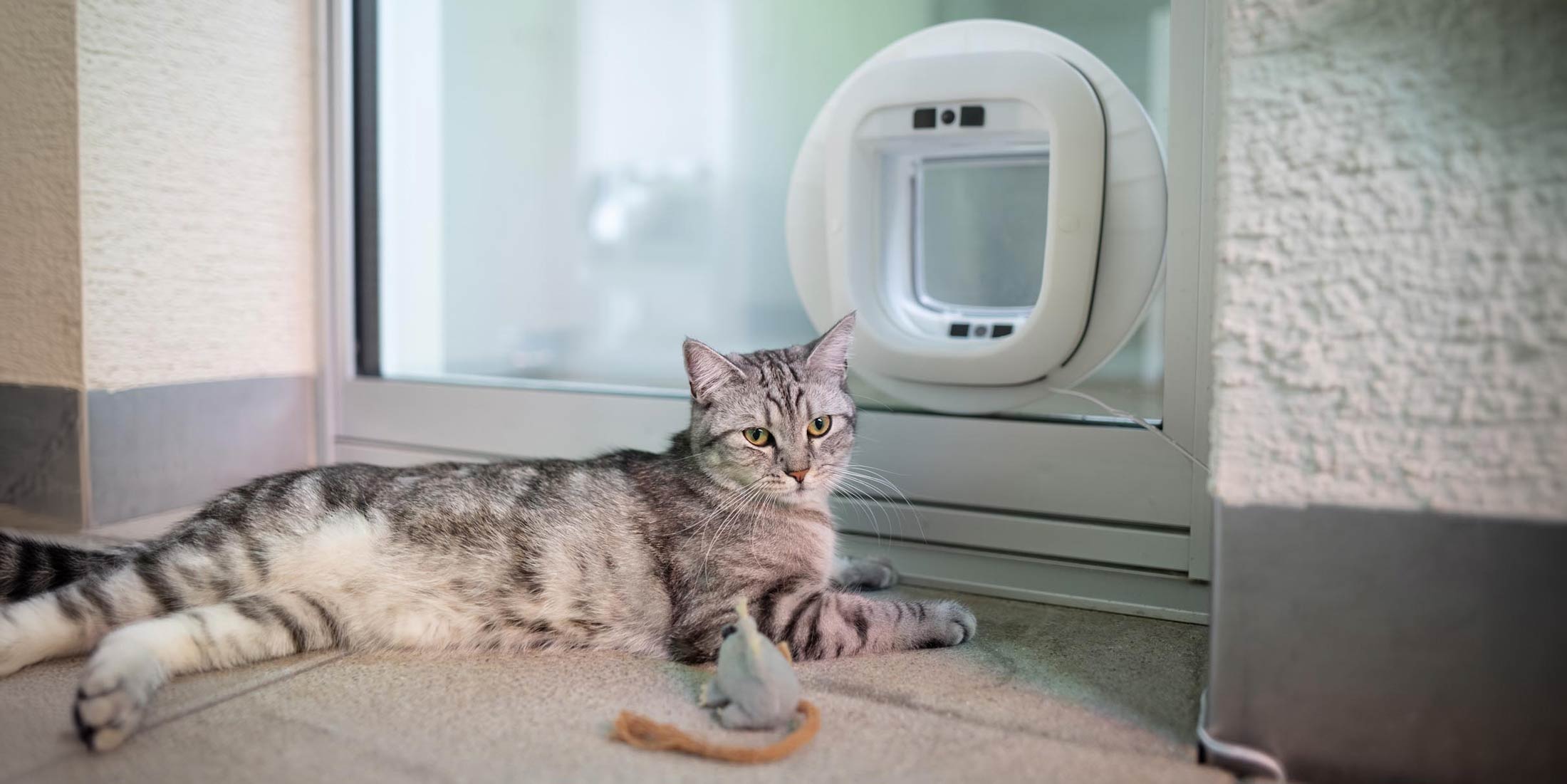
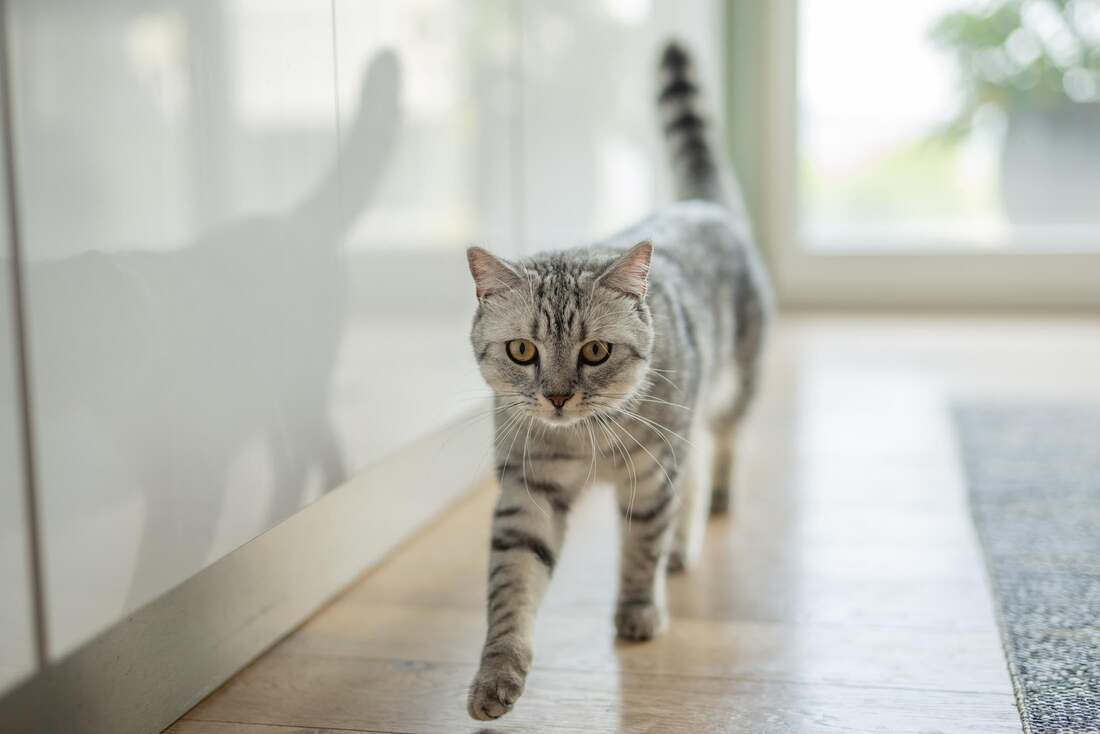
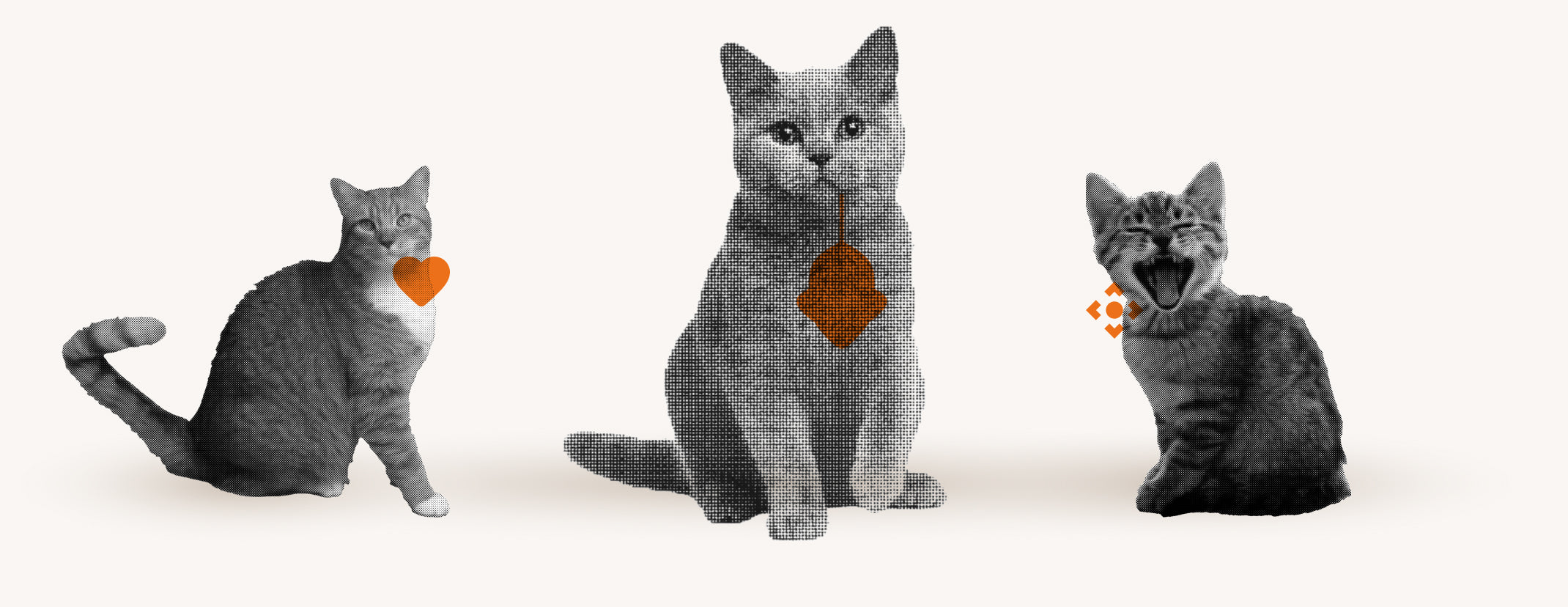
Share:
Optimal British Shorthair food for your velvet paw
BKH Age: How old do British Shorthair cats get?